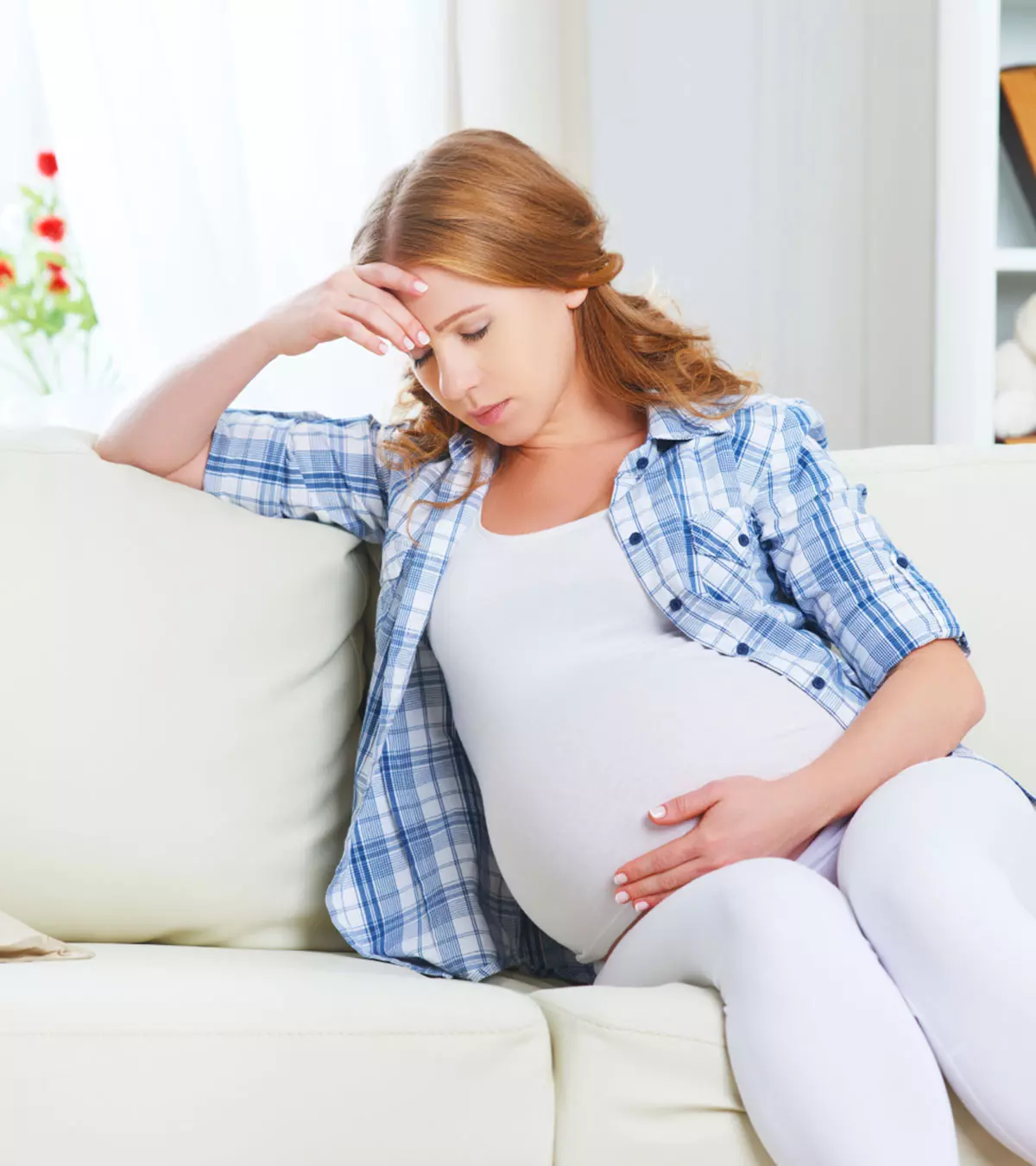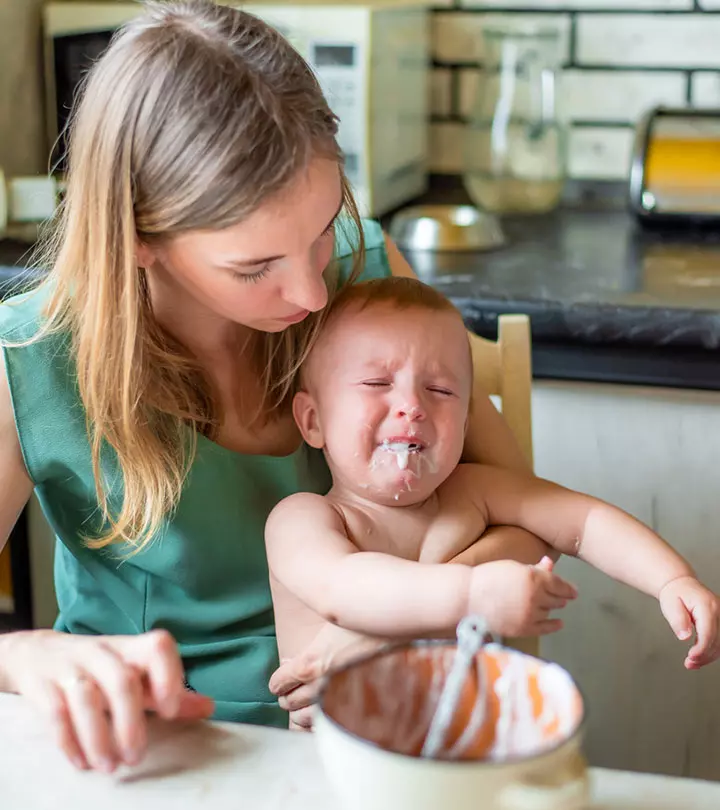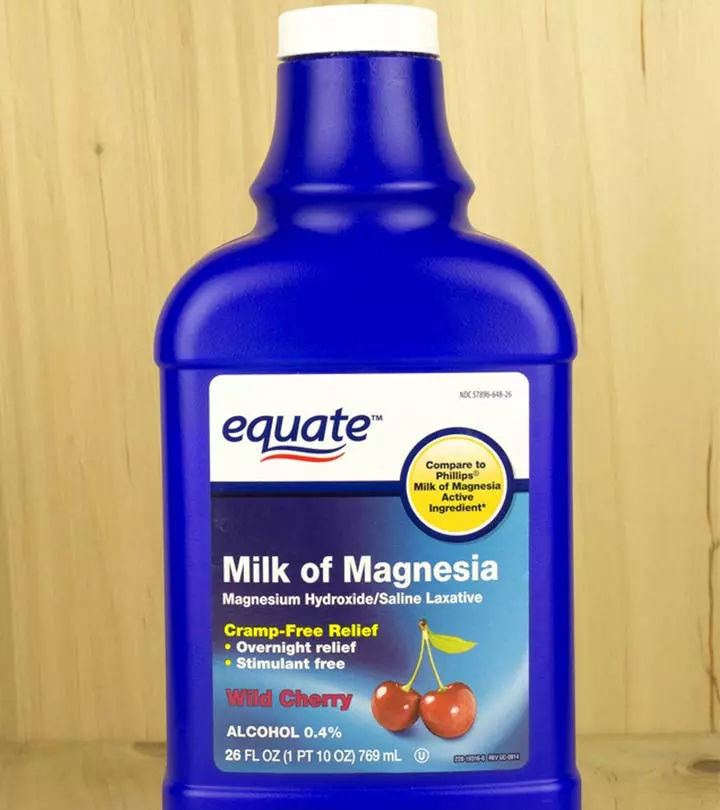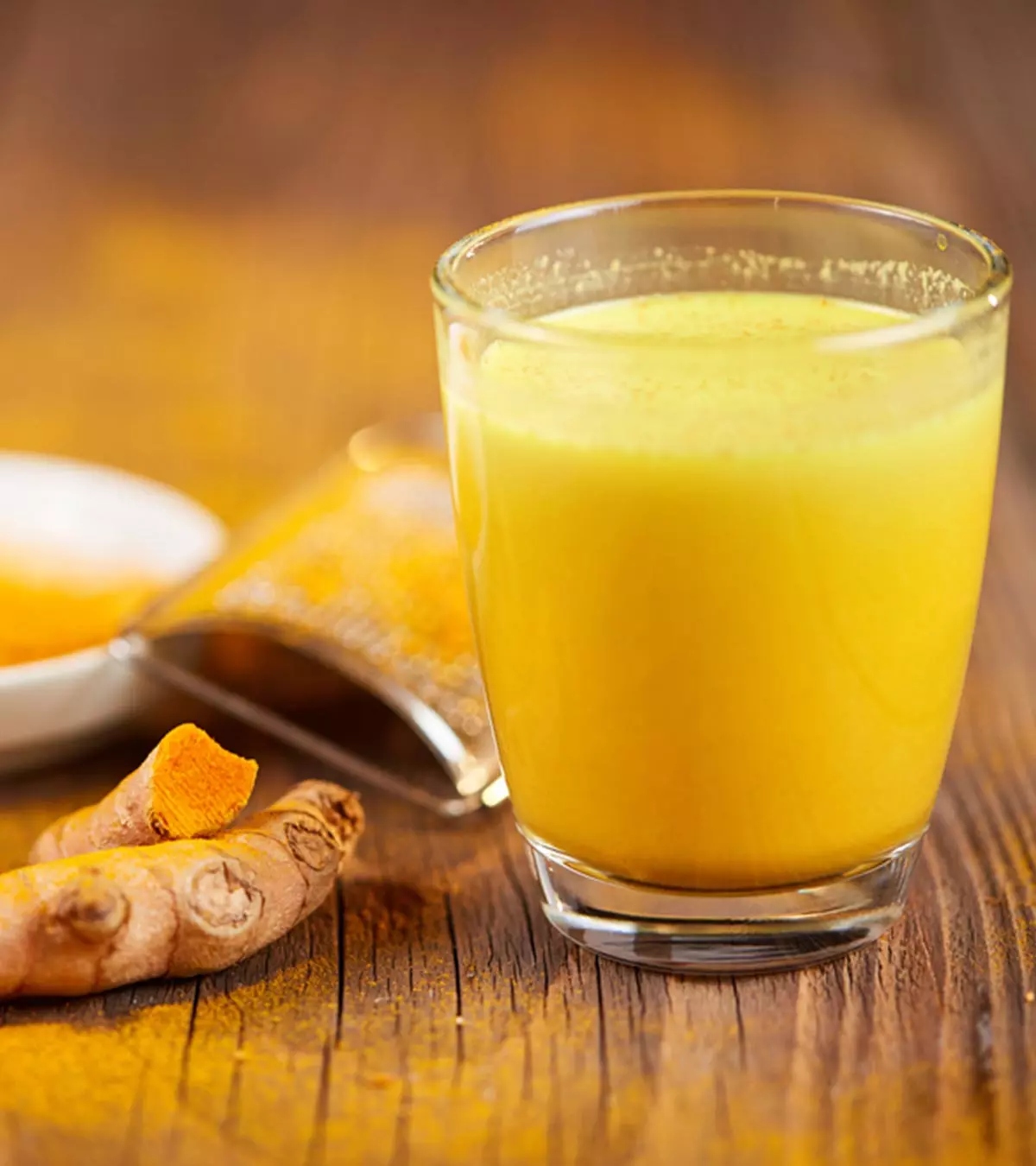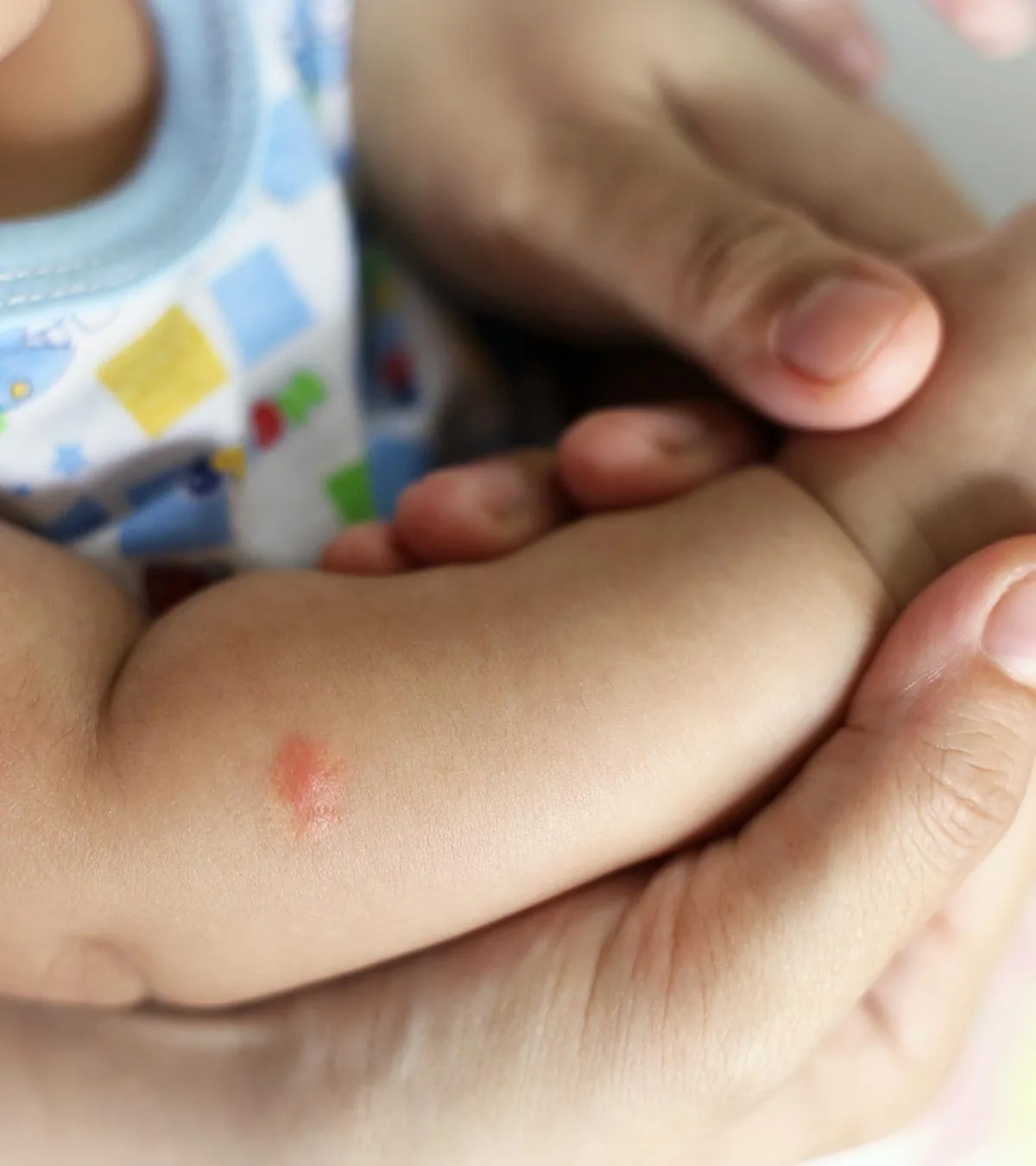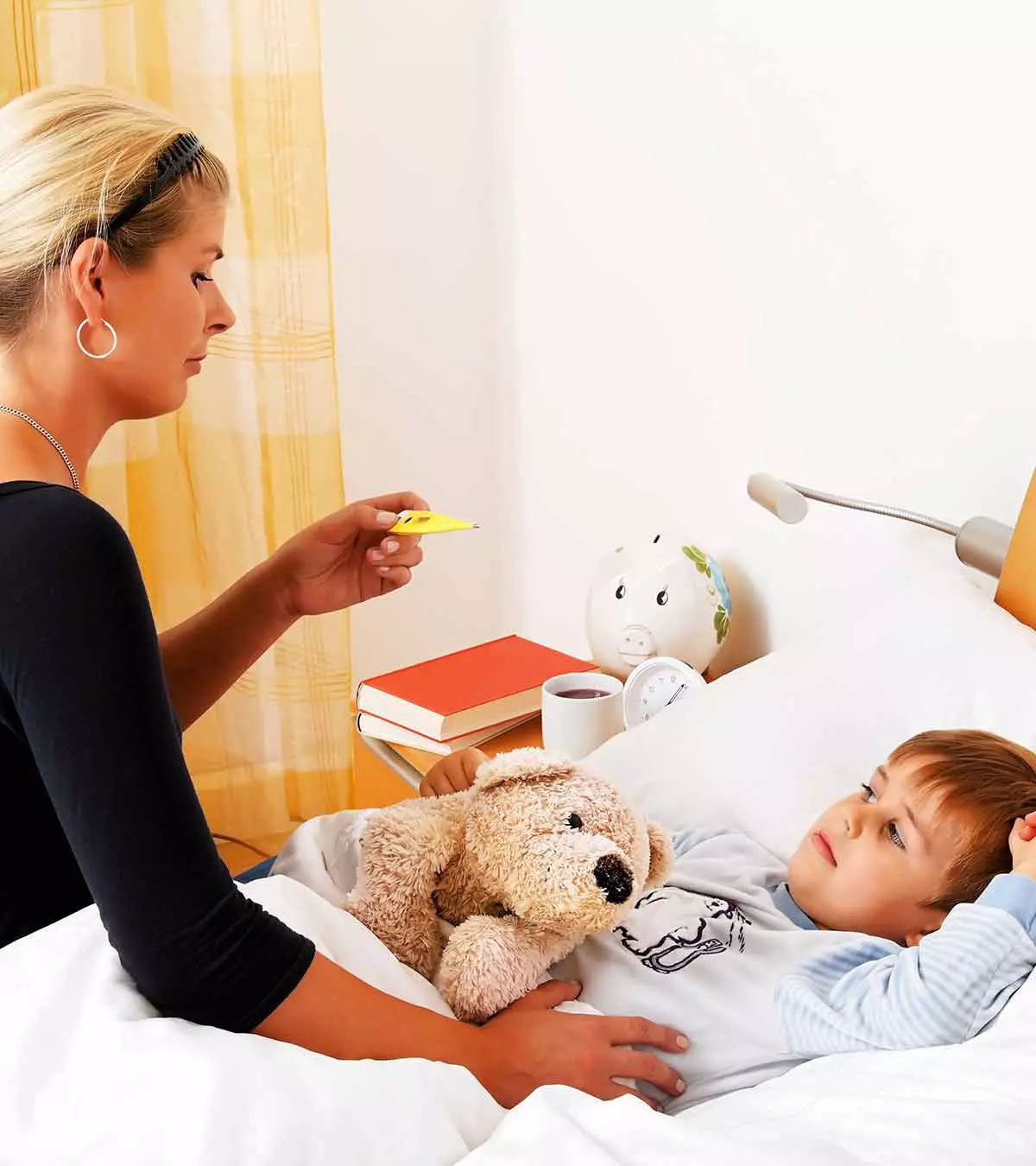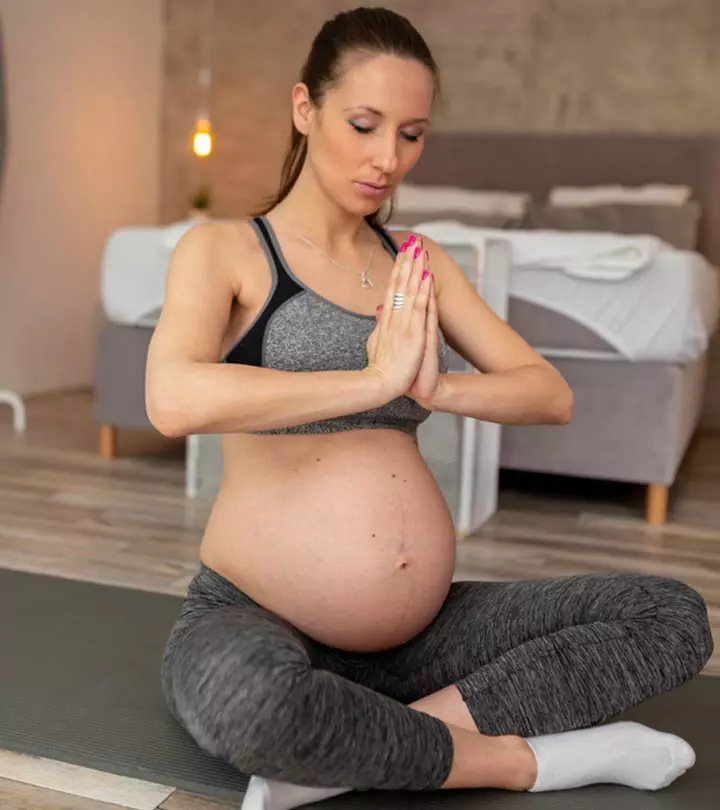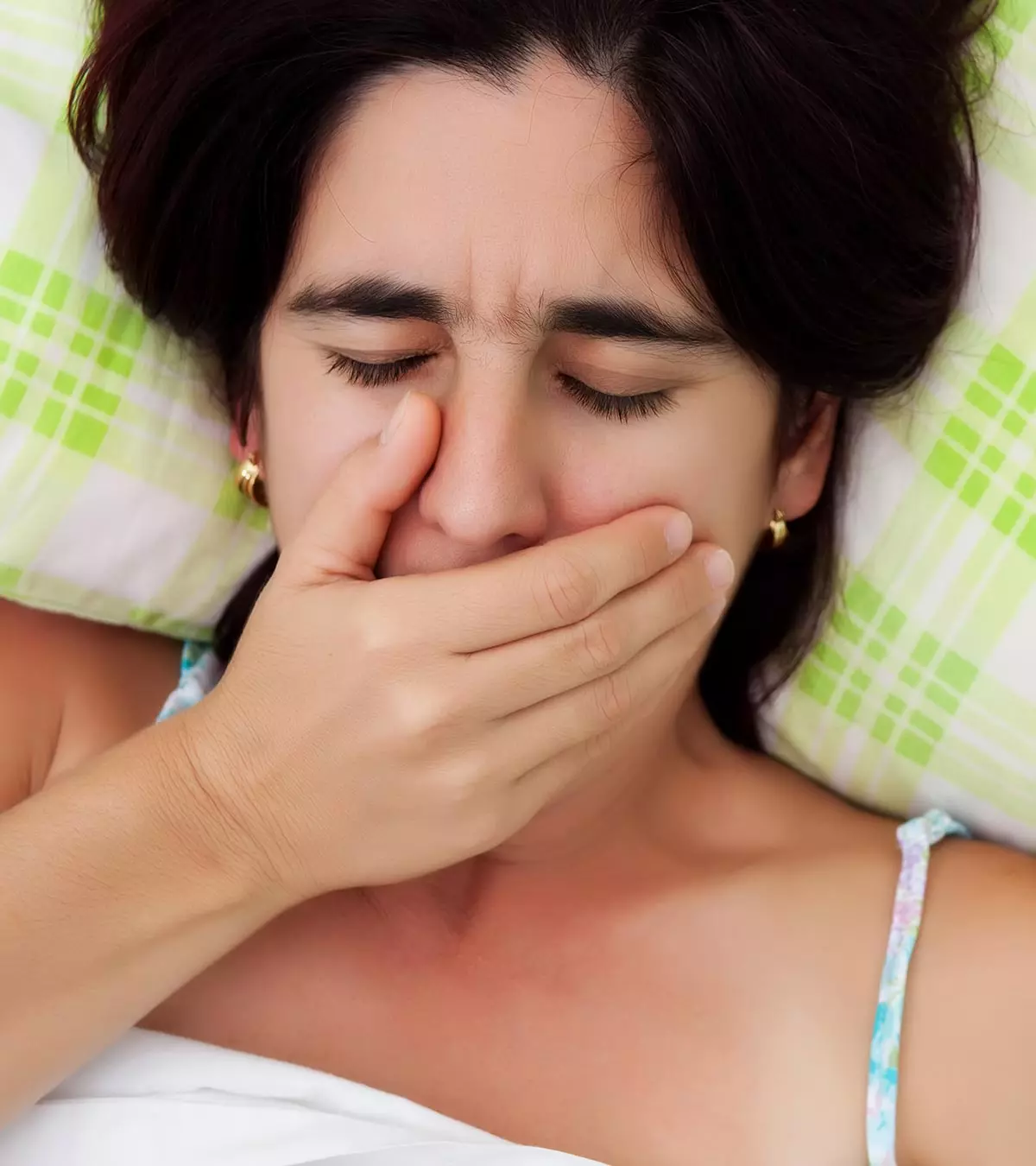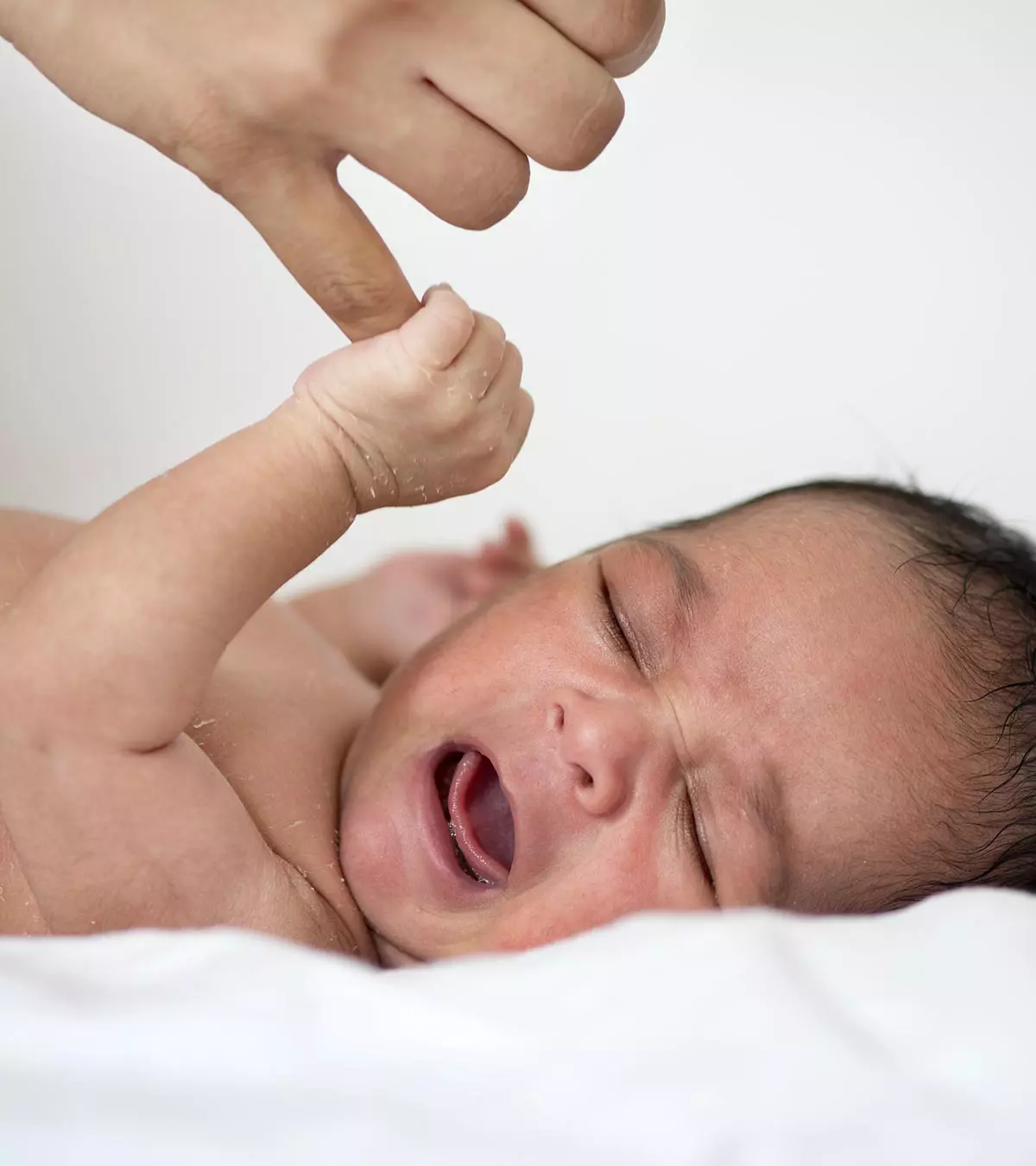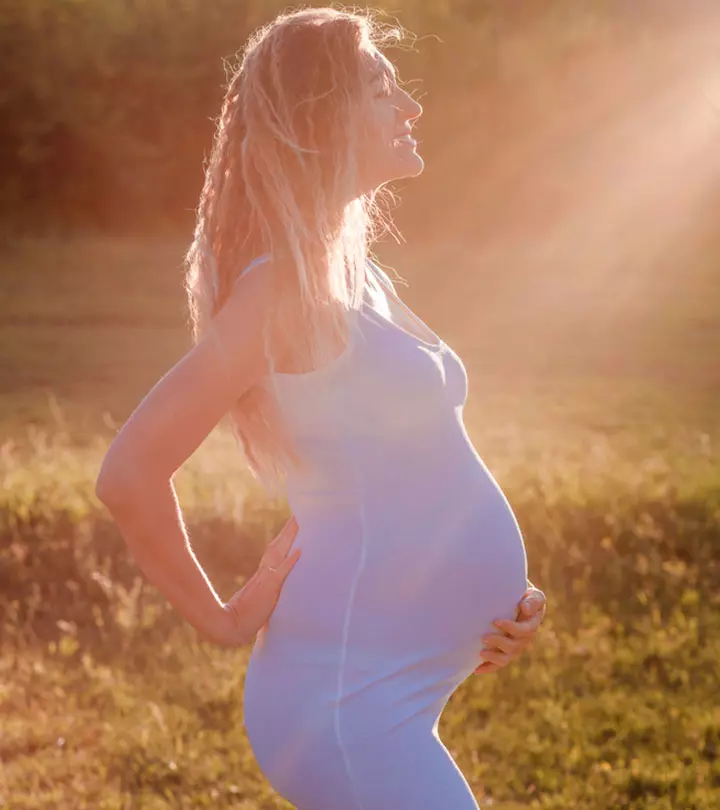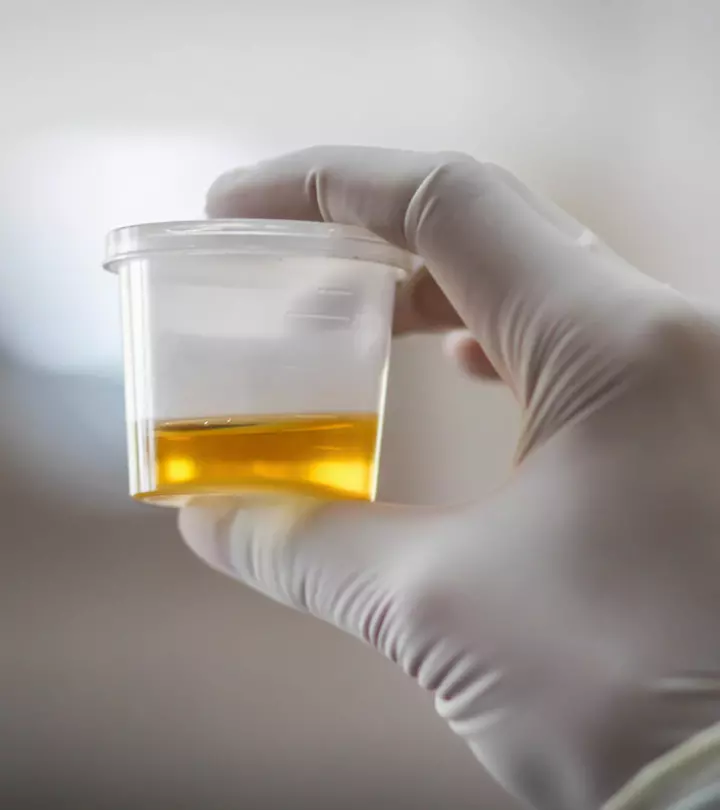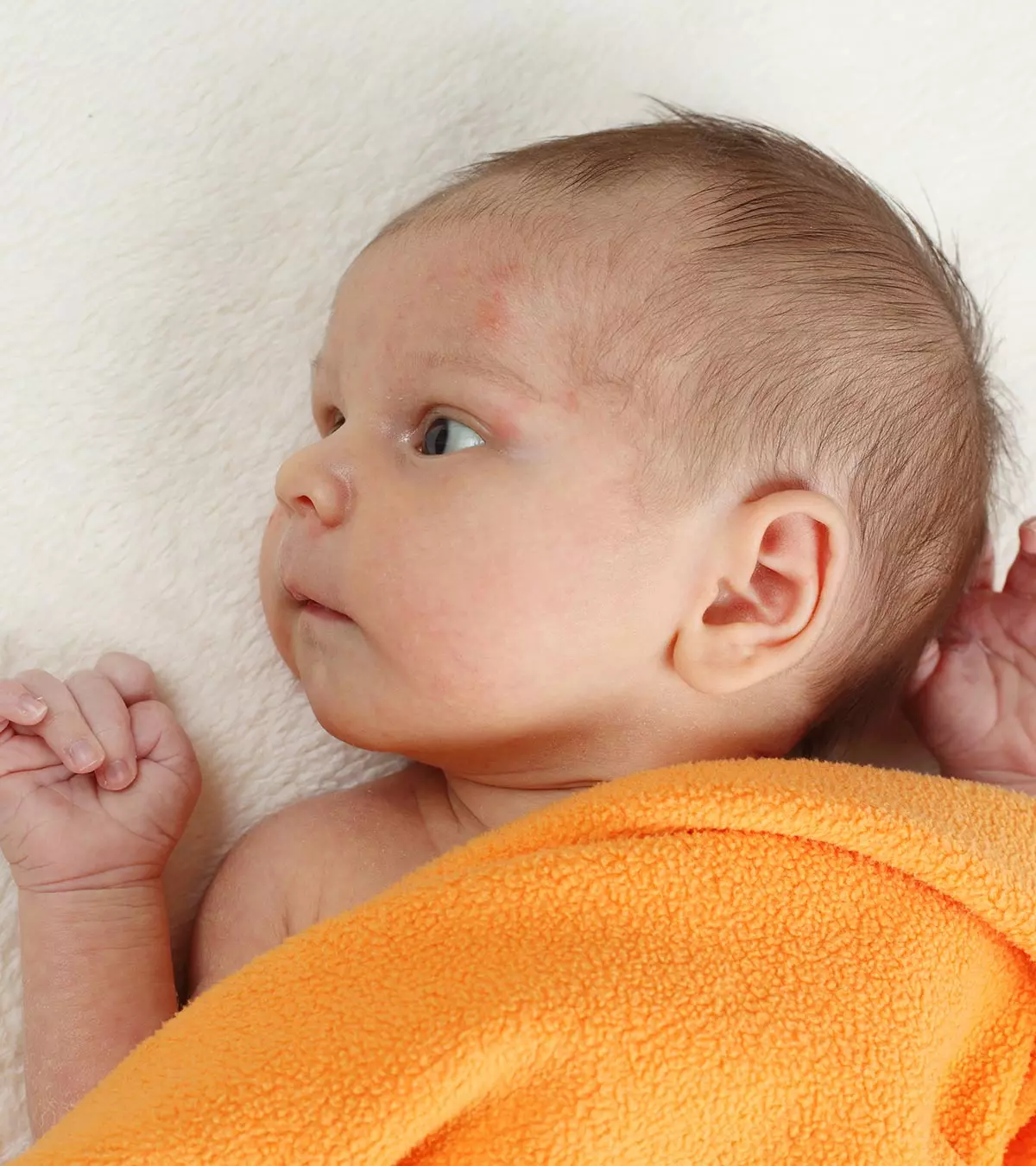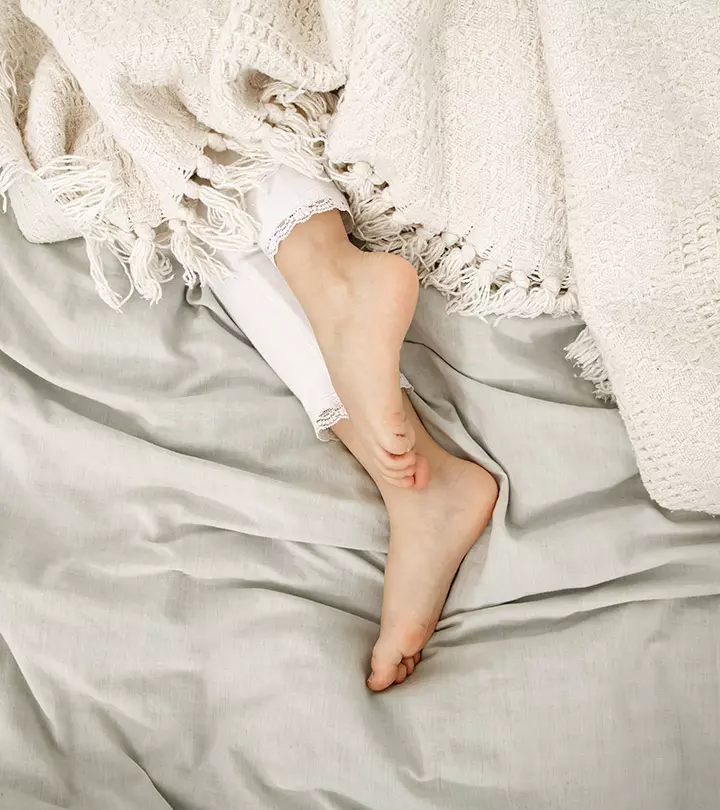
Image: iStock
Masturbation and lovemaking in pregnancy are often seen as stigmas, and misconceptions around these are aplenty. If you would want to know whether masturbation during pregnancy is safe, this post might help.
Most women go through changes in libidoiThe erotic urge or sex drive of an individual due to hormonal pregnancy changes. Moreover, your huge belly in the later pregnancy could make it uncomfortable when indulging in intercourse, and masturbation may be more convenient.
Read on as we discuss the benefits and contraindications of masturbation when pregnant.
Key Pointers
- Masturbation during pregnancy is considered safe except during high-risk pregnancies or if the doctor advises against it.
- It relieves stress, boosts immunity, and makes you feel happy due to the release of endorphins.
- In case of water leakage or vaginal bleeding, masturbation should be avoided.
Is It Safe To Masturbate When Pregnant?
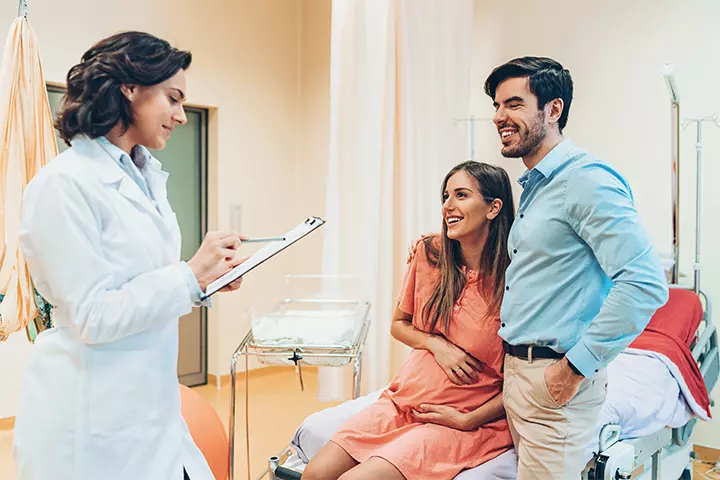
Yes, it is safe to masturbate or engage in mutual masturbation during pregnancy. However, in some high-risk pregnancies, the healthcare providers recommend abstinenceiThe act of refraining from indulgent behavior, usually alcohol or sex from masturbation, orgasm, penetration, etc. (1). Therefore, it is best to consult your doctor regarding the safety of masturbation during pregnancy.
 Quick fact
Quick factWhat Are The Benefits Of Masturbation During Pregnancy?

The following are the benefits of masturbation during pregnancy (2).
- It helps in relieving stress and sexual tension.
- Some women have sleep problems during pregnancy. Masturbation can help one sleep better.
- Increased blood flow to the genitals can make it easier for a woman to feel sexual pleasure or reach orgasm during pregnancy. In addition, orgasms release endorphinsiHormones that the body releases when experiencing stress or pain , making one feel happy and relaxed.
- Endorphins also help in relieving body pain. It can relieve different aches and pains of pregnancy.
- More convenient than lovemaking, as once the belly grows in size, many positions might be uncomfortable.
- Some males are skeptical about having intercourse during pregnancy as they are concerned about their wives and baby. In such cases, mutual masturbation can help a couple enjoy mutual pleasure and intimacy (3).
- With several physical and emotional changes during pregnancy, masturbation can help a woman feel confident and improve her body image.
- The physical pleasure from sexual stimulation can be a pleasant change from the usual discomforts of pregnancy, such as morning sickness, swollen ankles, sleep disturbances, food aversions, sciaticaiA crippling ailment caused by pathology of the sciatic nerve or sciatic nerve root , and round ligament pain.
- Pregnancy and associated stress and responsibilities can make a woman put her wants and desires on the back burner. Masturbation can help one remember self-worth and one’s identity.
- A study done on a small group of people concluded that orgasms help in boosting immunity (4).
Are There Any Side Effects Of Masturbation?
While the act of masturbation is safe and normal, there are some moral and societal stigmas associated with it. Moreover, the myths surrounding sexual arousal, self-pleasure, and negative feelings can harm an individual’s mental health and well-being (5).
 Point to consider
Point to considerWhat Are The Risks Of Masturbation During Pregnancy?
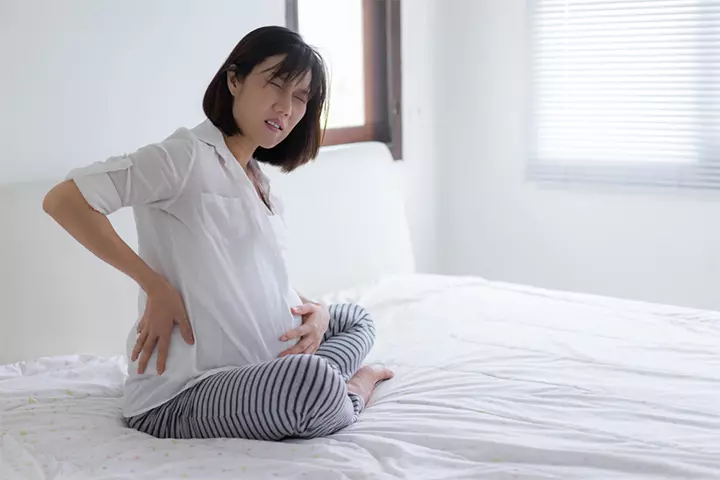
Most women who masturbate during pregnancy do not have any problems. However, some women may experience Braxton HicksiUterine contractions that occurs from the second or third trimester of pregnancy contractions after having an orgasm. Braxton Hicks contractions may begin as early as the second trimester and are more common during the third trimester.
During a Braxton Hicks contraction, the uterine muscles tighten for around 30 to 60 seconds and last up to two minutes. They may feel uncomfortable but are painless. These contractions are more frequent and intense as one gets closer to the due date (6).
 Research says
Research saysWhen Should You Avoid Masturbation During Pregnancy?

Your doctor may ask you to abstain from masturbation under the following conditions.
1. Placenta previa
It is a condition in which the placenta lies low in the uterus and covers the cervix of the uterus. This condition is seen in around one in 200 pregnancies. It is usually diagnosed in the second trimester. Placenta previa can cause bleeding and other complications later in the pregnancy (8).
2. Incompetent cervix
Cervical incompetency or cervical insufficiency is characterized by premature dilation of the cervix during pregnancy. It is usually not accompanied by pain or contractions. If you exhibit any symptoms of cervical insufficiency, your healthcare provider will perform transvaginal ultrasoundiAn examination of a woman's uterus, ovaries, tubes, cervix, and pelvic region between 16 and 20 weeks of pregnancy. Cervical incompetency can cause premature birth and miscarriage (9).
3. History of preterm labor
Women with a history of preterm labor in previous pregnancies may be asked to avoid masturbation.
4. Water leakage
If the amniotic saciThe womb's fluid-filled sac that houses and shields a fetus ruptures and the fluids break before labor before 37 weeks of pregnancy, it is known as the preterm prelabor rupture of membranes or PPROM. For some women, it can trigger labor. It can happen in around three percent of all pregnancies. You may be advised to take ample rest and avoid masturbation if you have had water leakage (10).
5. Vaginal bleeding
Bleeding during pregnancy is not uncommon. However, it does not always mean that there is a problem. While spotting in the first trimester is common, bleeding at any stage later in pregnancy might indicate underlying pathology. The doctor might suggest avoiding masturbation for some women if they experience bleeding (11). If you experience severe cramping, bleeding, or discomfort during or after masturbation, it is recommended you consult your doctor.
Frequently Asked Questions
1. Can an orgasm cause a miscarriage?
For women with normal pregnancy without any complications, orgasms do not increase the risk of going into premature labor and miscarriage (12).
2. Is it safe to use vibrators, dildos, etc., during pregnancy?
Vibrators, dildos, and toys are safe during pregnancy if you do not have pregnancy-associated complications. However, it is necessary to keep them clean and sanitized to avoid infections. Make sure your hands and any items used are clean before you begin. If you share these toys, use a male latex condom on them to help prevent any infection (13).
3. Can masturbation harm the baby?
The baby is well protected inside the womb, and sexual activity is unlikely to cause any harm. No scientific evidence suggests that masturbation during pregnancy can harm the baby.
4. Can masturbation help with pregnancy-related vaginal dryness?
Masturbation may help with pregnancy-related vaginal dryness by promoting vaginal lubrication. Self-pleasure and sexual arousal may reduce vaginal dryness and alleviate sexual discomfort during intercourse as well (14).
5. Can masturbation help with pregnancy-related urinary incontinence?
Masturbation may help with pregnancy-related urinary incontinence. Regular orgasms can lead to stronger pelvic floor muscles and reduced urinary incontinence in women. (15).
6. What are the common misconceptions surrounding masturbation during pregnancy?
A common myth about masturbation during pregnancy is that it could harm the woman or the baby. However, unless there are complications in the pregnancy, masturbation is usually safe and doesn’t harm the baby. Another misconception is that women lose interest in masturbation during pregnancy. In reality, sexual desires can vary from woman to woman. Some may prefer gentler forms of intimacy, like touching or kissing, while others may experience an increase in sexual desire (16).
Masturbation during pregnancy can be safe if you have an uncomplicated and low-risk pregnancy. If your healthcare provider advises you to abstain from sexual intimacy or insert anything inside the vagina, you should avoid it. Also, you may ask the doctor to know the safety based on individual factors. You may also take caution to maintain hygiene in the gentle area. Seek medical care if you notice symptoms such as cramping, discharge, or bleeding after masturbating during pregnancy.
Infographic: Can Masturbation Help You Prepare For Delivery?
Masturbation during pregnancy can be beneficial beyond sexual excitement and its psychological benefits. Some exercises and massages that arouse sensual feelings can also help you improve delivery outcomes. However, you may also try prenatal exercises and massages without exploring the sexual potential to ease delivery. Check out the infographic to learn how masturbation helps in delivery.
Some thing wrong with infographic shortcode. please verify shortcode syntax
Illustration: Masturbation In Pregnancy: Safety Benefits And Risk Factors
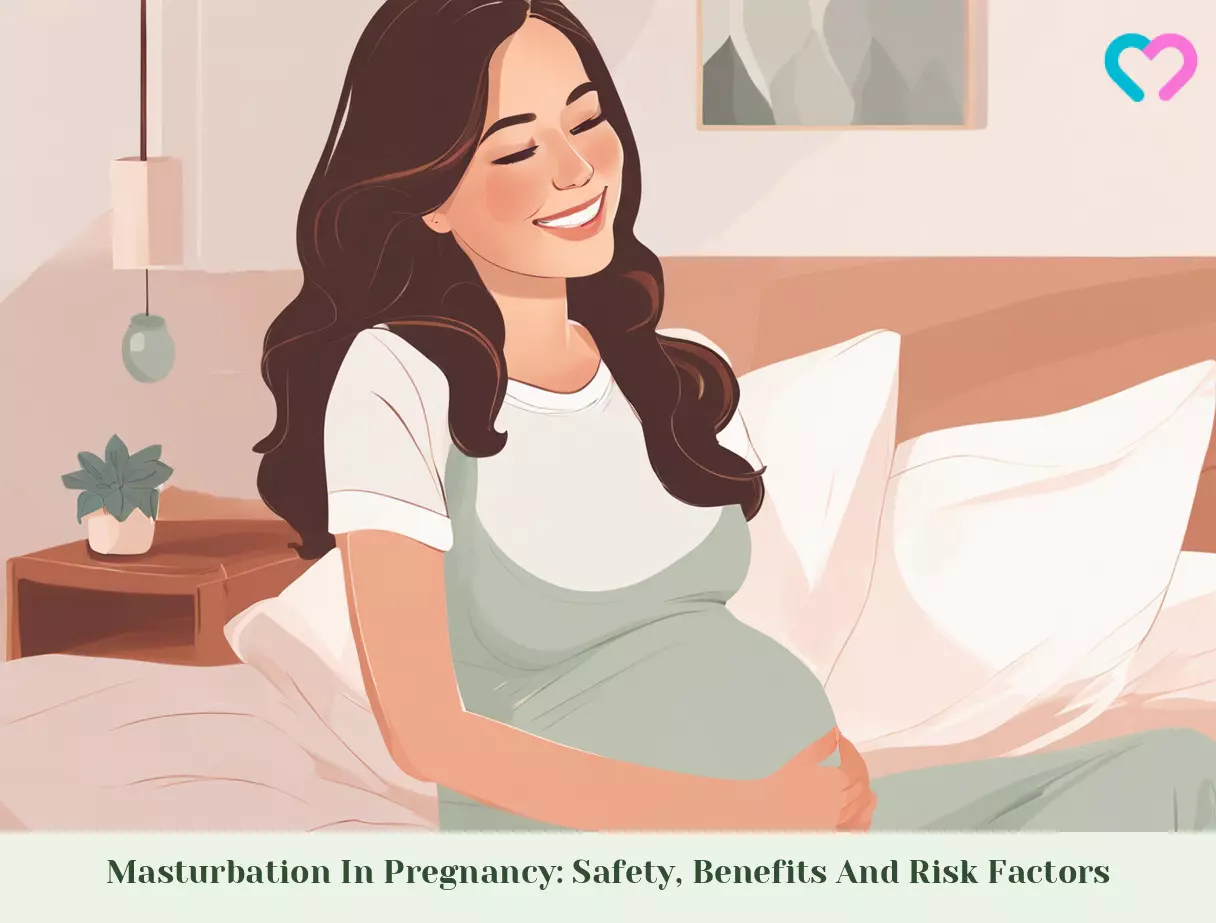
Image: Stable Diffusion/MomJunction Design Team
References
- Viola Polomeno; (2000); Sex and Pregnancy: A Perinatal Educator’s Guide.
https://www.ncbi.nlm.nih.gov/pmc/articles/PMC1595041/ - Is masturbation good for you?
https://www.plannedparenthood.org/learn/teens/sex/masturbation/masturbation-good-you - Sex during pregnancy.
https://www.marchofdimes.org/find-support/topics/pregnancy/sex-during-pregnancy - Philip Haake et al; (2004); Effects of sexual arousal on lymphocyte subset circulation and cytokine production in man.
https://pubmed.ncbi.nlm.nih.gov/15316239/ - Masturbation.
https://www.sutterhealth.org/health/masturbation - Braxton Hicks Contractions.
https://americanpregnancy.org/healthy-pregnancy/labor-and-birth/braxton-hicks/ - Katie Kyndely; (1978); The Sexuality of Women in Pregnancy and Postpartum: A Review.
https://www.jognn.org/article/S0090-0311(15)30142-3/fulltext - Placenta Previa.
https://www.marchofdimes.org/find-support/topics/pregnancy/placenta-previa - Weak cervix (cervical incompetence or cervical insufficiency).
https://www.tommys.org/pregnancy-information/pregnancy-complications/cervical-incompetence - Waters breaking early (PPROM).
https://www.tommys.org/pregnancy-information/pregnancy-complications/waters-breaking-early-pprom - Bleeding during pregnancy.
https://www.pregnancybirthbaby.org.au/bleeding-during-pregnancy - Sex in pregnancy.
https://www.nhs.uk/pregnancy/keeping-well/sex/ - Sex during pregnancy: questions and concerns.
https://www.nct.org.uk/information/pregnancy/wellbeing-and-lifestyle-pregnancy/sex-during-pregnancy - Masturbation.
https://my.clevelandclinic.org/health/articles/24332-masturbation - Sexual Activity and Your Heart.
https://cardiacrehab.ucsf.edu/sexual-activity-and-your-heart - Sex and Pregnancy.
https://mydoctor.kaiserpermanente.org/mas/structured-content/Health_Topic_Sex_and_Pregnancy_-_OBGYN.xml?co=%2Fregions%2Fmas
Community Experiences
Join the conversation and become a part of our nurturing community! Share your stories, experiences, and insights to connect with fellow parents.
Read full bio of Dr. Mona Hardas
Read full bio of Dr. Ritika Shah
Read full bio of Rebecca Malachi
Read full bio of Dr. Joyani Das






